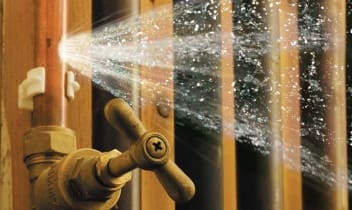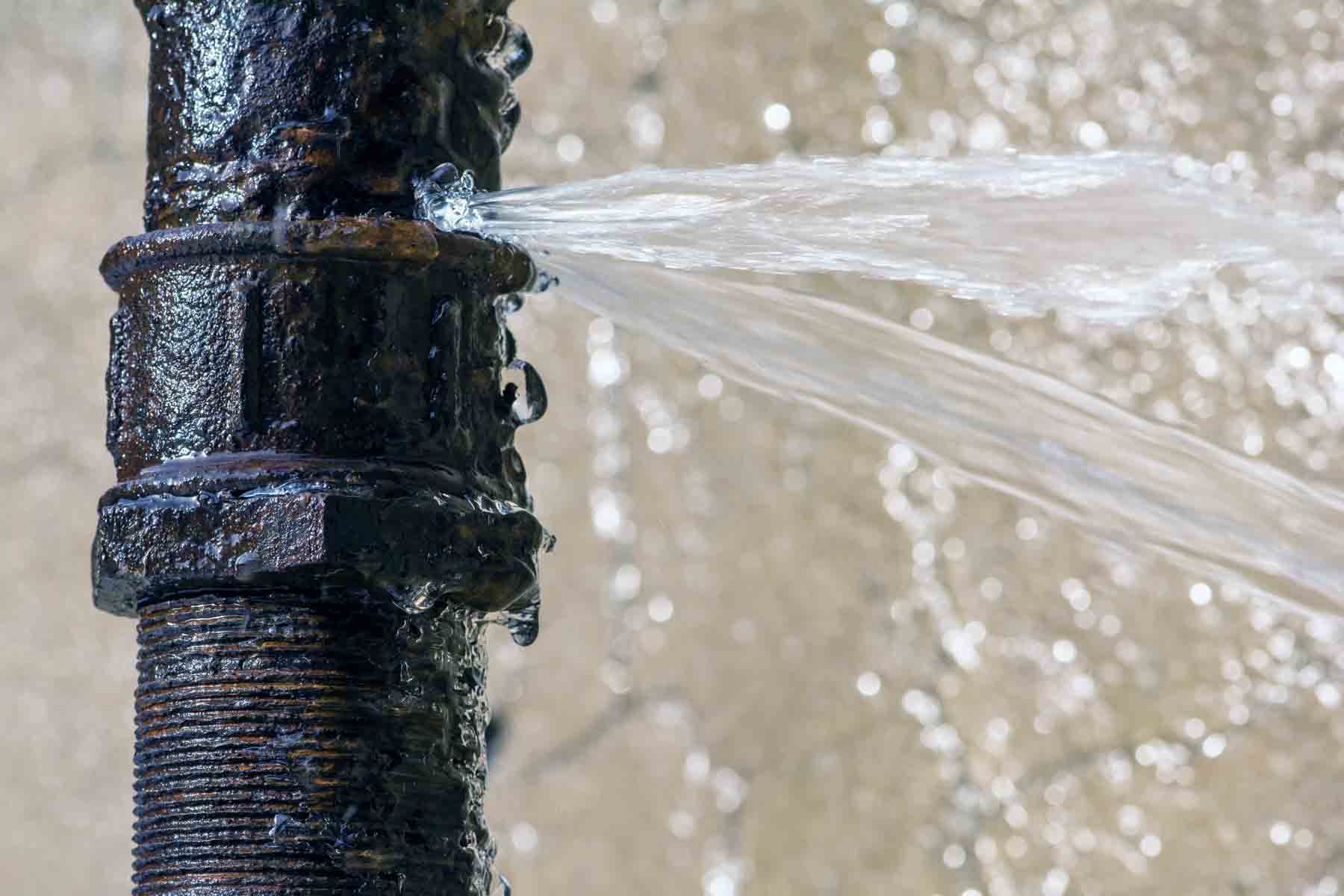What to Do When a Burst Pipe Causes Water Damage in Your Home
What to Do When a Burst Pipe Causes Water Damage in Your Home
Blog Article
Stopping Burst Pipes: Vital Tips to Safeguard Your Pipes
Protecting against ruptured pipelines is a critical problem for home owners, specifically throughout chillier months when the threat of cold is enhanced. Applying critical actions such as correct insulation, routine evaluations, and maintaining regular interior temperatures can considerably decrease the chance of pipeline failing.
Understand Pipeline Vulnerabilities
Comprehending pipe susceptabilities is important for efficient pipes upkeep and preventing expensive damage. A number of variables add to the vulnerability of pipelines to bursts, including product make-up, age, and ecological problems. Older pipelines, particularly those made from galvanized steel or polybutylene, often deteriorate over time, causing increased risk of ruptures and leakages.
Temperature level fluctuations can also significantly impact pipeline stability. In chillier climates, water caught in pipelines can freeze, applying and broadening pressure on the pipeline walls, which may ultimately result in a burst. Additionally, high water stress can stress pipelines, particularly at bends and joints, enhancing the chance of failing.

Insulate Pipeline Appropriately
Proper insulation of pipes is critical for stopping freezing and subsequent bursts throughout chilly weather (burst pipe). Insulating your pipes system properly safeguards versus temperature goes down that can cause pricey damage. Begin by identifying prone areas where pipelines are revealed to exterior temperatures, such as cellars, attics, and outside walls
Usage foam pipe insulation sleeves or wrap insulation tape around these locations to supply a safety barrier. Ensure that all areas of the pipes, especially those with minimal warmth exposure, get adequate insulation. Pay unique interest to fittings and joints, as these are more at risk to cold.
When insulating, it's vital to choose materials that meet regional building regulations and are appropriate for the certain setting. For circumstances, fiberglass insulation is usually advised for its thermal resistance properties - burst pipe. Furthermore, consider utilizing warmth cords or tape in extreme problems, which can be plugged in to offer extra heat
Consistently check protected pipelines for any kind of indications of wear or damage, as endangered insulation can decrease its efficiency. By taking these proactive actions, you substantially lower the risk of pipe bursts, guaranteeing a trustworthy pipes system throughout the winter months.
Maintain Constant Temperature Level
A secure interior temperature level is necessary for stopping ruptured pipelines throughout the cold months. When temperature levels drop, water within pipes can freeze, increasing and developing pressure that may ultimately create the pipes to burst. To mitigate this risk, home owners ought to maintain a constant temperature throughout their living space, preferably no less than 55 ° F(13 ° C)Making use of a programmable thermostat can help take care of indoor temperatures effectively, guaranteeing that rooms with plumbing remain cozy also navigate to these guys when your house is vacant. Pay unique attention to areas that are a lot more susceptible to cool, such as attics, garages, and cellars. Maintaining cabinet doors open under sinks can also enable warmer air from the home to distribute around pipes.
Additionally, it is sensible to allow taps to leak somewhat throughout extreme cool spells. This small flow of water can protect against cold by reducing stress within the pipelines. Furthermore, throughout specifically serious weather condition events, think about briefly putting on hold any nighttime troubles on your thermostat to maintain a stable cozy setting. By applying these methods, house owners can considerably minimize the threat of pipe bursts and protect their pipes systems versus the extreme winter season aspects.
On A Regular Basis Evaluate Plumbing
Routine assessments of plumbing systems are important for avoiding burst pipelines and preserving overall home integrity. Routine checks allow property owners to determine prospective concerns before they rise right into pricey repair services or major water damage. Throughout these evaluations, it is important to check out noticeable pipelines for signs of deterioration, leakages, or use. Pay special focus to locations susceptible to cold, such as basements, attic rooms, and exterior wall surfaces.
In addition, evaluating joints and connections is essential, as these factors are frequently vulnerable to leakages. Homeowners ought to additionally analyze water stress degrees, as extreme stress can strain the plumbing system and enhance the risk of pipeline bursts.
Take into consideration scheduling professional pipes inspections at least once a year, especially prior to winter, to guarantee your system is prepared for colder temperatures. By being aggressive in your approach, you can secure your home against the turbulent and pricey repercussions of burst pipelines.
Know Emergency Treatments
Understanding emergency treatments is important for every home owner, particularly after carrying out regular pipes evaluations. Being prepared for a pipes emergency situation can significantly reduce damage and save costs.
Following, keep important devices useful. A plumbing emergency set should include a wrench, plunger, and towels, along with a flashlight and a pail for little leakages. In addition, take into consideration having the call information pop over to these guys for a relied on plumber readily offered, should the scenario intensify beyond your control.
If you spot a leakage or burst pipeline, right away switch off the water and alert your plumbing professional. Record the damages with photographs for insurance policy objectives. Know the indicators of potential pipes concerns, such as uncommon water stress fluctuations or damp places on wall surfaces
Eventually, aggressive knowledge and quick activity are important in managing pipes emergency situations, guaranteeing your home stays safeguarded and decreasing possible damage.

Verdict
Finally, preventing ruptured pipelines demands a multifaceted technique that consists of understanding pipe susceptabilities, appropriate insulation, keeping constant interior temperatures, routine evaluations, and expertise of emergency procedures. By implementing these essential approaches, the risk of pipes failings can be significantly minimized, thus making sure the longevity and efficiency of the plumbing system. Proactive procedures not just protect versus potential damages but likewise contribute to total water preservation and the defense of building.
In chillier environments, water caught in pipelines can freeze, exerting and increasing stress on the pipe walls, which may inevitably lead to a ruptured. When temperature levels decline, water within pipelines can ice up, broadening and producing pressure that might ultimately trigger the pipelines to burst. By implementing read this article these approaches, house owners can significantly decrease the danger of pipe ruptureds and safeguard their pipes systems against the harsh winter season elements.

Report this page